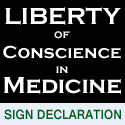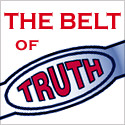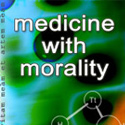Designer Babies
The Senate candidate for the Christian Democratic Party in Western Australia (CDP) is a prominent medical practitioner. Dr Lachlan Dunjey, has just launched his campaign on the theme of “Choose Life Australia”, a pro-life theme that supports the intrinsic value of life from fertilisation to natural death.
Dr Dunjey offered the following comments in response to the news that a Perth couple is trying to create a “designer baby” in the hope that the child eventually will save the life of their critically ill daughter:
“I have great compassion for the families involved. They would have given this a lot of thought and heartache. They love. They cherish life. I believe them when they say they will love and cherish the new baby as much as any other. Their intentions and compassion and love are not in question. I pray for a happy outcome for the child with the problem and for future relationships in this family.”
“But however much we like to think that good intentions and compassion are “enough” we still have to consider whether a “line” has been crossed and be able to consider the implications openly and freely without this being labeled as condemnation or lack of compassion – such accusations stifle proper consideration and proper debate.
“So many arguments and rationalizations for embryo selection can be made in the name of compassion that sound good but the process inevitably results in destruction of unsuitable embryos. The basis of the CDP Senate campaign in which I am now involved is that all human life is of value including the embryo and that there is a line here that must not be crossed.”
Asked whether the sacrifice of one life of limited potential is justified to save another of greater potential, Dr Dunjey remarked that on this principle we should also allow the sacrifice of one child or adult of limited potential – however we come to define that – for another of greater potential, something all reasonable people will refuse to contemplate.
Dr Dunjey asked: “What does it mean to be human? Will we define human life by its potential? Will we define it by the degree of disability and what is a disability? Can we decide on the basis of self-awareness and go to a position that some adopt and that is: a newborn baby less than four weeks old with a disability can be eliminated as it is not yet self-aware? People may react in horror to such a suggestion but the position is defended by prominent ethicists. So what does it mean to be human and when does human life really begin?” ” Every biology student knows the answer to that question.” Dr Dunjey added.
Dr Dunjey also said : “Human life begins when a cell containing human chromosomes first has the ability to replicate and differentiate into individual tissues. The genetic pattern of such a cell is uniquely human and determines its adult characteristics. This is indeed the beginning of human life and it occurs when a human egg is fertilised by a human sperm although it can also occur when the egg is “tricked” into replicating by itself, this process being known as cloning.
“The danger of any other definition is too great” he added. “The nation may decide that certain states of awareness, mental capacity or “worth”, physical capacity or “value” determine that individual”s right to exist or not exist, and then it may be re-defined to include or exclude varying physical characteristics that are deemed acceptable or of worth to society. That should sound terrifyingly familiar.”.
“We know when we begin” he added. He said, consider the “designer” child: “Mummy, what would have happened to me if my tissue match had not been right?” But you were just a clump of cells, dear. “But Mummy it was still me, my hair colour was determined and my eye colour was determined.” But you weren”t really a “person” then, dear. “Mummy, even the shape of my smile was determined – that was me!”
There is unfortunately no way that the “designer” child can escape the fact that the suitability of their genetic make-up for “other” purposes determined their right to continue to exist – not just partly, but wholly Dr Dunjey remarked.
“For what conditions do we make the decision that a certain embryo will live while others are eliminated? Can a designer child also be created for the “cure” of adult diabetes and if so, up to what age? May a 50-year-old male father a baby for this purpose? Who will make such decisions or should it be left to the individual?” Dr Dunjey asked.
Probing further, the CDP Senate candidate also challenged us to find answers to the following questions: “on what basis will we allow an embryo with a genetically determined “disability” to live or be eliminated? Will it only be for certain serious disease states or do we allow selection to eliminate diabetes or high cholesterols from our world. It sounds attractive, doesn”t it? Can we have a perfect world? If the answer is “yes” then surely we should also consider characteristics such as athletic ability – at least because we will have a healthier society with less consequent cost to our health system. Even with good intentions the end-of-slope consequences are frightening.”
Dr Dunjey also reminded us that the CDP also believes that upholding the intrinsic value and dignity of human life is significant for end-of-life issues and relevant in the consideration of euthanasia.
Authorised by G. Goiran, 7 Matthew Way, Thornlie
Further comment: Dr L Dunjey .Tel 0407 937 513






